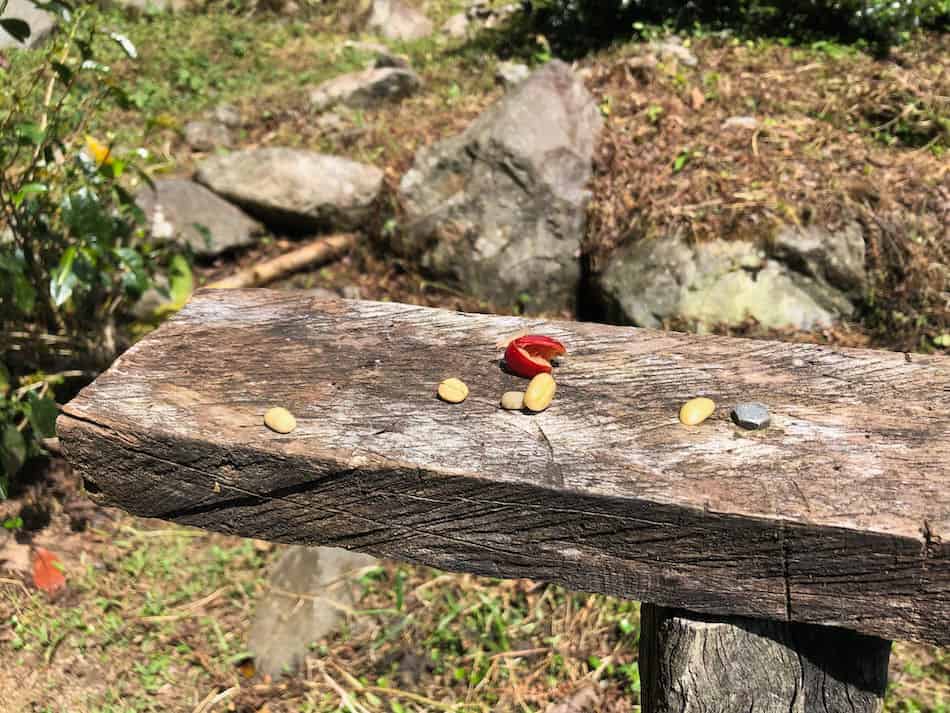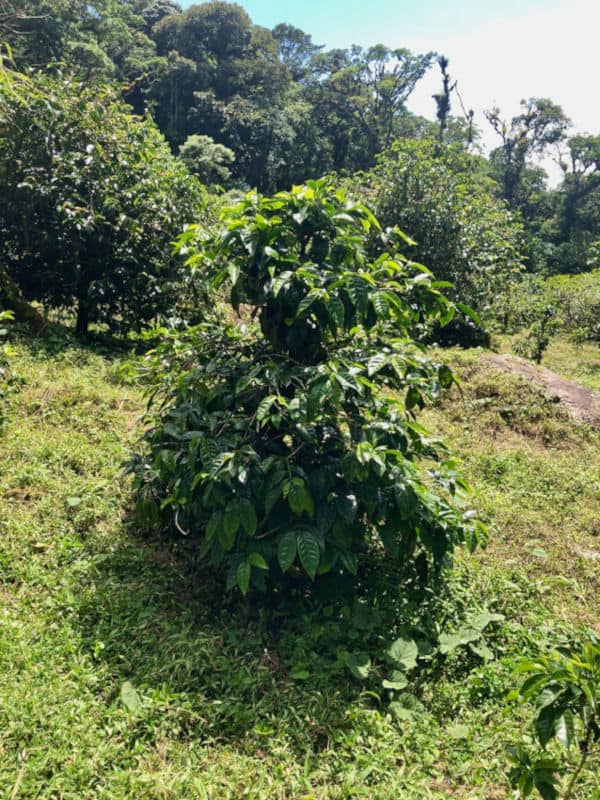There are four main coffee tree species with several coffee bean strains. Each coffee tree has ties to different regions, and it would be interesting to look into one unique type of coffee.
Pacamara coffee is a cross between two varieties of Arabica coffee, Pacas and Maragogype. It was an original creation in 1958 by the Coffee Research Institute of El Salvador, and the name is a blend of the first four letters in each parent variety.
Pacamara coffee is attracting attention due to its attributes and unique flavor. Read this article to get more information on this exceptional coffee and what distinguishes it from other varieties.

The Origin of Pacamara Coffee
Pacamara coffee is a result of crossing the Pacas with the Maragogype varieties. Creating the Pacamara was done to get a hybrid that blends the best of each variety.
Since each of the varieties has a quality that the other does not have, why not blend them into an impressive coffee?
Developing the Pacamara took about 30 years of meticulous scientific research before releasing it to coffee manufacturers in the 1980s.
Pacas Coffee
This variety results from a natural gene mutation in the Bourbon variety with a notable effect on the plant’s size. Pacas trees manifest dwarfism traits, meaning they are more compact and much smaller.
The Pacas plant is hardy and can withstand water scarcity and rough winds due to its short stature and compact foliage. This variety allows for more efficient land use because you can plant them closer together, and they still produce high yields. Additionally, it is highly resistant to diseases.
Although Pacas tastes similar to its original variety, Bourbon, its body is more desirable, and it is less sweet.
Maragogype Coffee
Maragogype is the product of a genetic mutation in the Typica variety and is somehow the total opposite of the Pacas. This rare variety was discovered in 1870 in Brazil and now grows around Latin America.
This coffee tree grows very tall and has large leaves and beans. It produces low yields but with high-quality flavor.
However, Maragogype beans are relatively porous, and the flavor varies subject to the kind of soil in which it grows. Rich, fertile grounds produce the most extraordinary flavor.
What Makes Pacamara Coffee Different?
Pacamara coffee is different because it is a naturally selected and scientific product, resulting in a distinctive bean. The parent plants also have unique attributes. Pacas is a dwarf variety with tiny, compact seeds, while Maragogype is tall with few but large seeds.
Pacamara is intriguing and presents a double win for farmers from a farming perspective. The small trees thrive even when planted close together and the giant beans combine with the high-yielding Pacas genes to produce more coffee.
The initial production of this variety first occurred in 1958. But it took years of plant breeding and research to maintain genetics through subsequent generations for commercial viability. Decades after its initial release, Pacamara coffee keeps receiving attention from adventurous coffee lovers seeking new, fascinating flavors.
One of the hallmarks of Pacamara beans is its complex acidity which requires a light or medium roast to produce the best taste. Therefore, they are not ideal for a cold brew. However, Pacamara coffee beans are fantastic for french press and many brewing methods, including drip brewing.
The Unique Taste Profile of Pacamara Coffee
Pacamara coffee features a distinct flavor profile that is more fruity than several Latin American coffees. Its trademark flavors include complex fruity tastes like berries, citrus, and floral hints like jasmine. Pacamara’s texture is rich and creamy, with a full body to match its deep flavor.
In general, Pacamaras have intense, complex aromas, creamy textures in a dense and medium body, and elegant acidity. The flavors range from delicious touches of butterscotch and chocolate to fruitier hints of stone fruits, red berries, and citrus.
This coffee has a high reputation because it tastes great. In a cup, you can expect:
- An intense, vibrant acidity, which is the most outstanding attribute of Pacamara coffee
- A great, unique, creamy, medium, or full body
- Sweet, delicate notes of honey, chocolate, or butterscotch
- An aromatic, floral fragrance, particularly jasmine
- A variety of fruity, wine-like notes such as lime, orange, and berries
Benefits of Drinking Pacamara Coffee
Drinking Pacamara coffee has some benefits, such as:
- It is tasty: It has a variety of flavors with an outstanding balance between the sweet, delicate tastes of honey, chocolate, and butterscotch with vibrant acidity.
- It has a natural flavor: Pacamara has no artificial sweeteners or synthetic flavorings. It is natural and does not contain chemical additives that could harm your health.
- No side effects: Drinking a cup of Pacamara coffee will give you an energy boost without the unpleasant effects of caffeine jitters or crashes.
- Small tree. Allows coffee cherry collectors to have easy access to the fruit.
Pacamara Coffee Farming Advantages

Pacamara coffee is a mix of the best of both parental varieties with numerous consumer and farming benefits.
Resistance to Wind
Pacamara trees are dense and short in stature, up to barely 5 feet (1.5 meters) due to the dwarfism gene they inherit from the Pacas. They are robust plants that survive low to the ground but produce large seeds. Therefore, they are more resistant to harsh weather conditions like rain and wind than the Maragogype variety.
The size also allows Pacamara plants to grow close together on steep slopes, an ideal quality for growth at high altitudes.
High-Quality Taste
Pacamara beans are larger and more preferable than Pacas beans. As noted, the plant inherits dwarfism from the Pacas and a larger bean size from the Maragogype. This combination offers a higher quality and more refined taste profile.
The Pacamara variety grows at high altitudes, meaning it grows slower and has time to develop its unique taste. Additionally, higher altitudes have fewer bugs and parasites, so the plant does not need to produce more caffeine to ward off the insects. The result is a more concentrated flavor with less caffeine.
High Productivity
Pacamara plants thrive in the cool climate of high altitudes. Their size also makes harvesting easy in the steep terrain of Salvador’s high areas. These properties result in higher productivity compared to Maragogype plants.
Also, Pacamara beans are larger and more attractive than Pacas beans. Consequently, they produce a higher quality and more developed flavor profile.
Conclusion
Pacamara is a rare, delicious, high-quality coffee with an esteemed reputation. The beans are distinctive, with a jasmine-like aroma and a rich array of flavors. This coffee variety is a favorite among coffee enthusiasts looking for something more than their regular cup of coffee.
Do you want to try Pacamara Coffee? Here you can get a taste of Pacamara from El Salvador.
Also feel free to check out our Coffee Database, where you would find a great repository of different sellers and flavors.
